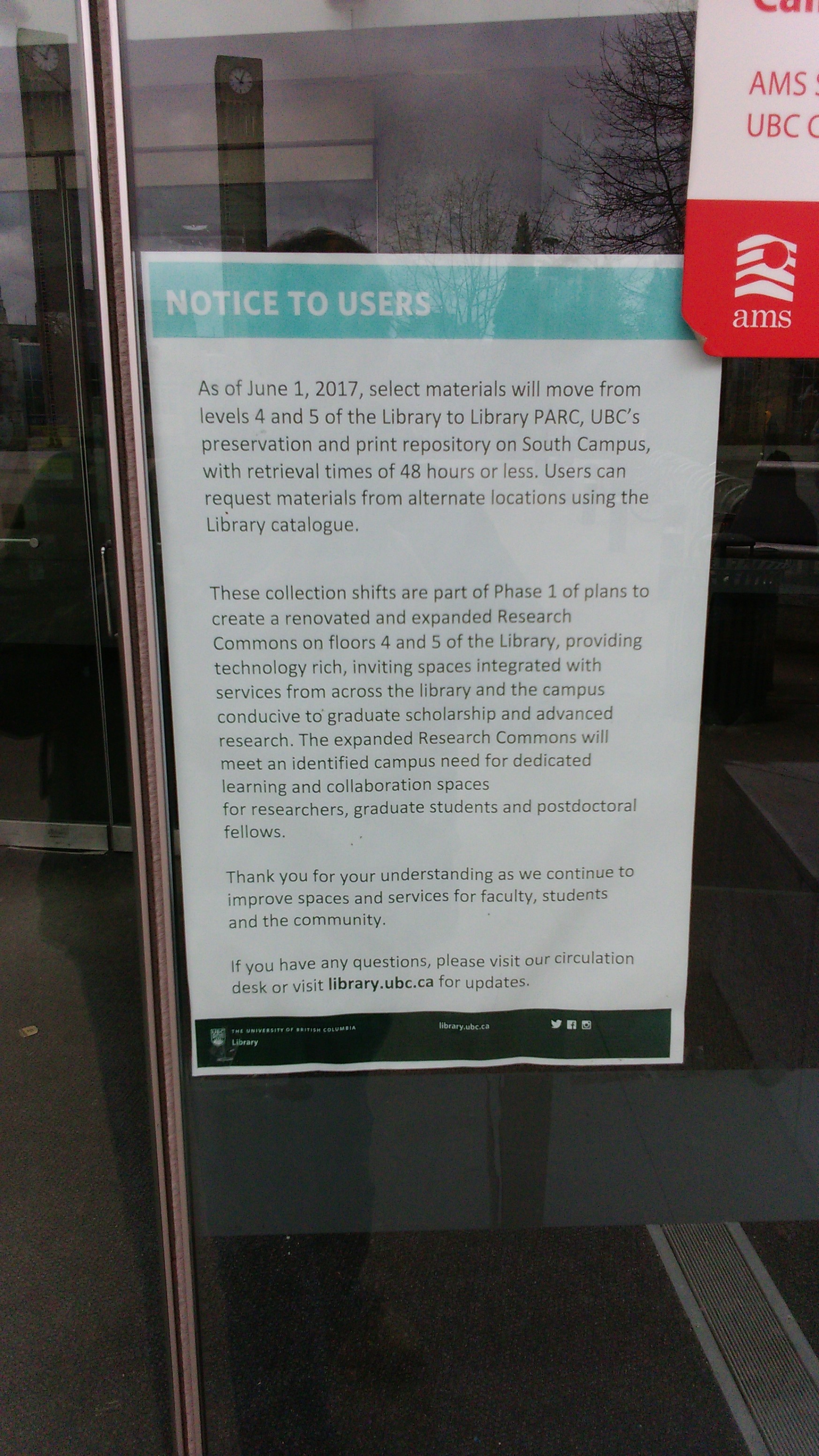Hi everyone! Hopefully this blog won’t need to exist for long, as we’ll be able to convince the admin that this is a bad idea, but until we do that, here’s the situation:
I’m not sure how many of you on here on here have used the Research Commons in Koerner Library; I’m currently one of the GAAs there, and also was during the last three years of my PhD. For about as long as I’ve been involved with the Research Commons (since 2012, off and on), there’s been a plan to move it up to the 4th and 5th floors of Koerner Library, to create a welcoming, positive, reseach-focused space for grad students, postdocs, and other researchers. They started moving the books off those floors last year in order to make this plan a reality. However, a couple of weeks ago, UBC senior admin announced to the Koerner Library admin that they’d like to take 25% of that space – half of the 5th floor space – which had already been allocated for grad students and for digital scholarship, and turn it into new administration offices. This is space that they want to take away from you, the grad students, and give to the admin.
Think about this. If you’re a graduate student, you probably don’t have an office of your own; maybe you don’t even have a shared office. Maybe you have some desk space in a lab; maybe you have a locker or a mail cubbyhole in your school or department. Maybe all you have is your backpack that you carry your laptop around in, and whatever space you can find in the corner of an otherwise busy building.
Not only that, but the proposed inhabitants of that new admin space would be the Office of the Vice-President Research and Innovation – who already have office space, in the Old Administration Building. Not only that, but consider how much graduate research and innovation would be stifled by cutting back the proposed Research Commons space by 25%. That doesn’t seem right for an office that’s concerned with research and innovation – or are they only concerned about it for faculty?
If this doesn’t sound right to you, there’s still time for us to voice our concerns about this. The head of Koerner Library is accepting feedback from interested parties, which she’ll pass on to the Provost; you can find her contact info here. I’ve also started a hashtag on Twitter: #NoKoernerAdminBuilding. Let’s see if we can stop admin from turning Koerner into an ivory tower, and keep our library and research space safe!

